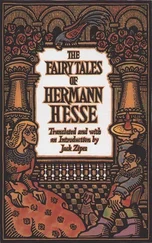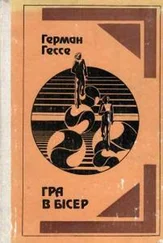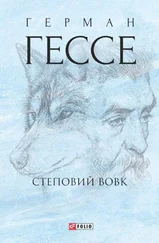And so Dasa yielded. He no longer contended with Pravati. He reviewed the troops, saw the war coming, anticipated it in debilitating dreams, and as his body grew leaner, and his face darker, he saw his happiness fading, his gaiety shriveling. There remained only his love for his son. That increased along with his anxiety, increased along with the arming and the drilling of soldiers. It was the flaming red flower in his parching garden. He wondered at how much emptiness and joylessness a man could endure; at how easy it was to grow accustomed to care and gloom, and he also wondered that so anxious and solicitous a love could so painfully dominate a life that had seemingly lost the capacity for passion. Although his life might be meaningless, it was certainly not without a center; it revolved around his love for his son. It was on Ravana’s account that he rose from his bed in the morning and spent his days in occupations and exertions directed solely toward war, and therefore repugnant to him. On Ravana’s account he patiently conferred with his generals, and withstood majority opinion only to the extent that he prevailed on them to wait and see, not plunge recklessly into adventures.
Just as his joys, his garden, and his books had gradually deserted him, so he was also deserted by those who for so many years had shaped his happiness and represented his pleasures. It had begun with politics, with Pravati’s passionate speech excoriating his fear of sinning and love of peace, almost openly calling all that cowardice. She had spoken with flushed cheeks and in fiery phrases of heroism, a prince’s honor, and the prospect of disgrace. At that time, stunned and with a sense of giddiness, he had suddenly realized how far his wife had become estranged from him, or he from her. Ever since, the gulf between them had widened. It was still growing, and neither of them did anything to check its growth. Or rather, it should have fallen to Dasa to do something about it. For only he saw the gulf for what it was. In his imagination it more and more grew into the gulf of gulfs, became a cosmic abyss between man and woman, between yes and no, between soul and body. In retrospect he thought he saw the whole thing with, complete clarity. He remembered how Pravati, magically beautiful, had captivated him until he parted with his friends, gave up his carefree life as a herdsman, and for her sake lived as a servant in an alien world, the son-in-law in the house of unkind people who exploited his infatuation to extract labor from him. Then Nala had come along, and his misfortunes had begun. The wealthy, handsome Rajah with his fine clothes and tents, his horses and servants, had seduced his wife. That might have cost him little effort, for poor Pravati had not been accustomed to regal splendor. But would she really have been led astray so easily and quickly if she had been faithful and virtuous at heart? Very well, the Rajah had seduced her, or simply taken her, and thus inflicted upon him the most horrible grief he had ever experienced. But he, Dasa, had taken revenge. He had killed the thief of his happiness, and had felt the killing as a moment of high triumph. But scarcely was the deed done than he had had to flee. For days, weeks, and months he had lived in swamp and forest, an outlaw, trusting no man.
And what had Pravati been doing all that time? The two of them had never spoken much about that. In any case, she had not fled also. She had sought and found him only after he had been proclaimed Nala’s successor, because of his birth, and she needed him in order to enter the palace and ascend the throne. Then she had appeared, had fetched him from the forest and the venerable hermit’s purlieus. He had been dressed in fine garments, made Rajah, and since then he had had nothing but glory and felicity — but in reality: what had he abandoned at that time, and what had he gained in exchange? He had gained the splendor and the duties of a sovereign, duties that had been initially easy and had ever since grown harder and harder. He had regained his beautiful wife, the sweet hours of lovemaking with her, and then his son, who had taught his heart a new kind of love and increasing concern for his imperiled life and happiness, so that now the whole country was on the brink of war. This was what Pravati had conferred upon him when she discovered him by the spring in the woods. But what had he left behind, what had he sacrificed? He had left behind the peace of the forest, pious solitude, and the presence and the example of a holy yogi. In addition he had sacrificed the hope of becoming a disciple and successor, of sharing the sage’s profound, radiant, unshakable peace of soul, of being liberated from the struggles and passions of life. Seduced by Pravati’s beauty, entangled by the woman, and infected by her ambition, he had abandoned the only way that led to liberation and peace.
That was how the story of his life appeared to him now. And in fact it could easily be interpreted thus. Only a few blurrings and omissions were needed to see it that way. He had omitted, among other things, the fact that he had not been the hermit’s disciple at all. On the contrary, he had been on the point of leaving him voluntarily. But perspectives often shift in hindsight.
Pravati regarded these matters quite differently, although she was far less inclined to reflection than her husband. She did not think about Nala at all. On the other hand, if she remembered rightly it had been she alone who had founded Dasa’s good fortune. She was responsible for his becoming the Rajah. She had given him a son, had lavished love and happiness upon him. But in the end she had found him unable to match her greatness, unworthy of her soaring projects. For it was clear to her that the coming war could have no outcome other than the destruction of the enemy and the doubling of her own power and possessions. But instead of exulting in this prospect and collaborating enthusiastically, Dasa, most unlike a prince, hung back from war and conquest and would have preferred to grow old idling away his time with his flowers, trees, parrots, and books. On the other hand there was Vishwamitra, the commander of the cavalry forces. He was a different sort of man, next to herself the most ardent partisan of the war, repeatedly urging that they strike for victory as soon as possible. In any comparison between the two, Vishwamitra could not help showing to advantage.
Dasa had not failed to notice his wife’s growing friendship with Vishwamitra. He saw how much she admired him, and let herself be admired by this brave and cheerful but possibly rather shallow, perhaps somewhat unintelligent army officer with his manly smile, his fine strong teeth and well-tended beard. Dasa observed it all with bitterness and at the same time with contempt. He deceived himself into thinking he felt only scornful indifference. He did not spy on them or try to discover whether their friendship had overstepped the limits of decency. He regarded Pravati’s infatuation with the handsome cavalryman, and the looks which showed how she preferred him to her unheroic husband, with the same outwardly indifferent, inwardly embittered calm with which he was wont to view everything that happened. Whether his wife was determined upon infidelity arid betrayal, or whether she was merely expressing her contempt for Dasa’s principles, it did not matter. The thing had come and was developing, was beginning to confront him like the war and the disaster whose imminence he sensed. There was nothing to be done about it. The only possible attitude toward it was one of acceptance, of stoic endurance. For that, instead of attack and conquest, was Dasa’s kind of manliness and heroism.
Whether or not Pravati’s admiration for the cavalry captain, and his for her, remained within the bounds of morality, in any case Pravati was less guilty than he, Dasa, himself. That much he understood. To be sure, thinker and doubter that he was, he tended to blame her for the evaporation of his happiness. Or at any rate he considered that she was partly responsible for his having stumbled into the complexities of life, into love, into ambition, into acts of revenge and raids. In his thoughts he even blamed woman, love, and lust for everything on earth, for the whole crazy dance, the whole wild chase of passions and desires, of adultery, of death, of killing, of war. But at the same time he knew quite well that Pravati was not to blame. She was not a cause, but herself a victim. She had not made, and could not be held accountable for, either her beauty or his love for her. She was only a grain of dust in the rays of the sun, a ripple in the stream. It should have been his task, and his alone, to withdraw from woman and love, from ambition and the hunger for happiness. He should have remained either a contented cowherd among herdsmen, or else he should have tried to overcome his own inadequacy by the mysterious path of yoga. He had neglected to do so, had failed; he had no vocation for greatness, or else he had not kept faith with his vocation, so that after all his wife was right to regard him as a coward. On the other hand, she had given him this son, this frail, handsome boy for whom he felt so fearful but whose existence filled his own life with meaning, who was in fact a great joy — a painful and fearful joy, certainly, but still a joy, his true happiness. Now he was paying for this happiness with the sorrow and bitterness in his heart, with his readiness for war and death, with his consciousness of moving toward a dire fate.
Читать дальше












